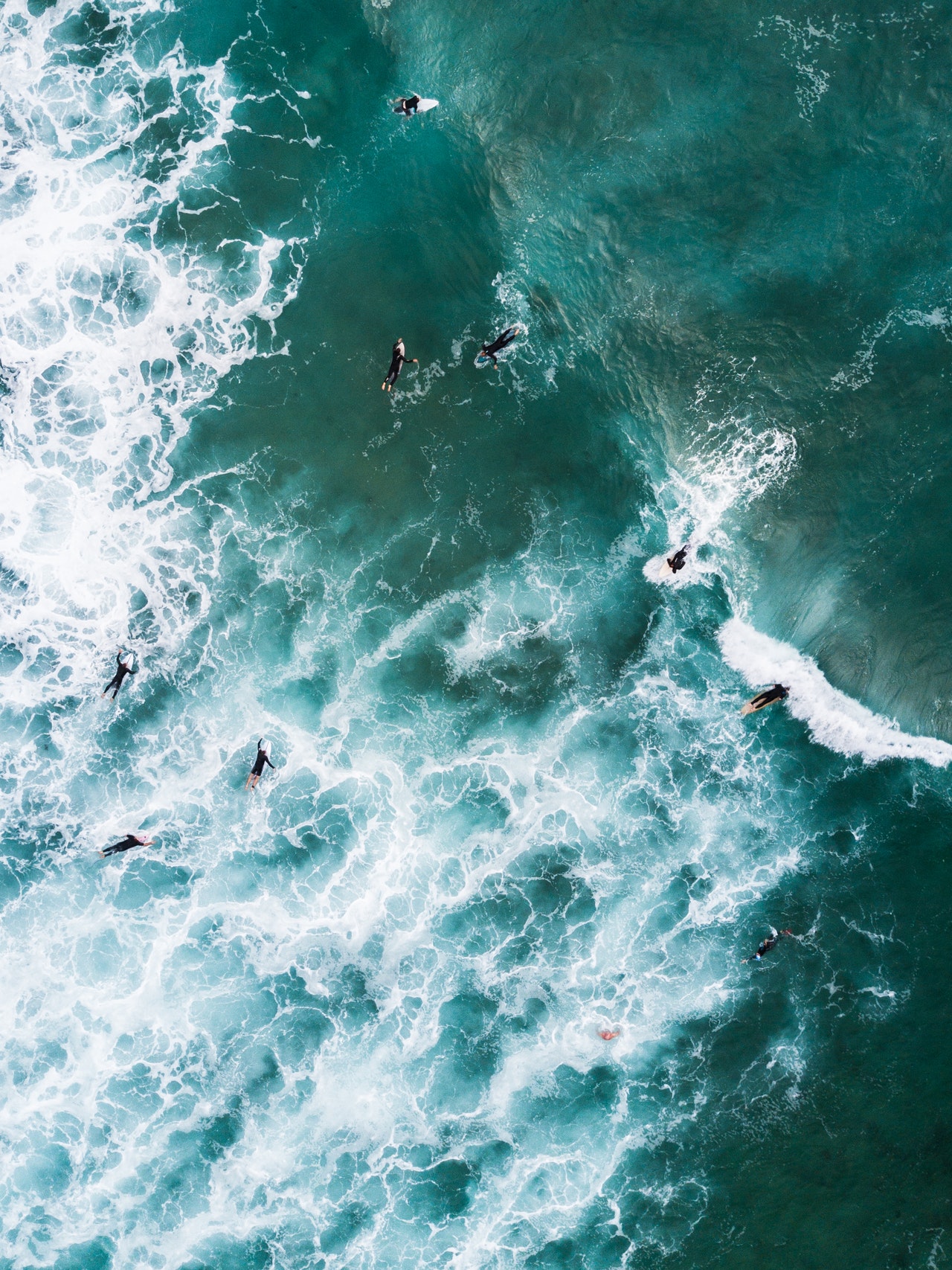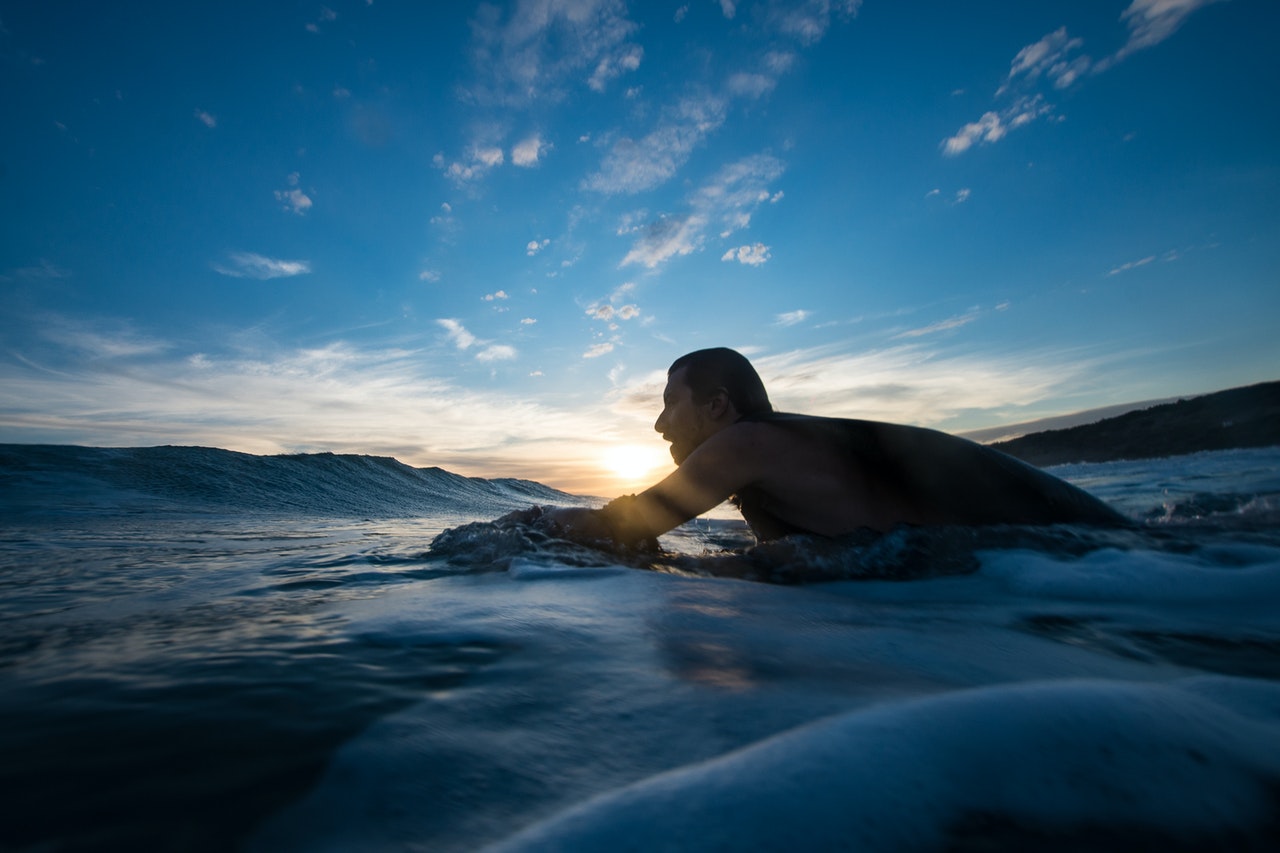The photo showed a man on a surfboard. Leaning into the face of the wave with determined intent, he slices through the water with an avalanche of white water crashing in his wake. While I don’t surf myself, I found this picture strangely inspiring. It was less about the surfer’s athletic poise than what it symbolised to a beaten-down dad.
You see, the guy in the picture is my mate, Jeremy, and the photo reminded me of a conversation we had last year. Up in Sydney for work, we were sitting in the back of an Uber zipping past Centennial Park, when Jez mentioned he’d gone for a surf at Bondi the previous day.
“But I never even knew you surfed,” I said. That I was unaware of this hidden talent was more unusual that it sounds – Jez is not only a mate but, as one of the three co-founders of The Father Hood, a business partner. I speak to him almost every day.
“Yeah, I haven’t surfed for years,” he admitted. “But it’s funny – if you’d have asked me how I saw myself before marriage and kids, I would’ve said first and foremost that I played guitar in bands and I was into running and surfing. Those were the things I loved to do. But then I had kids… I never do any of them any more.”
“Right, so in your head you picture yourself as this athletic rock god/surfer dude hybrid,” I said. “Whereas, in actual fact…” I glanced at the slightly crumpled figure sitting hunched in the backseat and gave him an exaggerated grimace.

That gratuitous piss-taking was my lame attempt to inject some levity into the conversation. Because what Jez was telling me was, in fact, incredibly sad. Here was this devoted dad, who, amid the shit-fight of daily life – the three kids, the busy job – had let parenthood rob him of the passions he once lived for. Becoming a dad had effectively stolen his identity.
He’s hardly alone either. Obviously, fatherhood triggers a radical life shift and, by and large, it’s a change for the better. But Jez’s story hints at the collateral impact and shows how #dadlife can obliterate your former sense of self.
To some extent that’s understandable. When your personal freedom is buried under a blizzard of family duties and work deadlines, it’s inevitable that something’s got to give. You genuinely want to step up to your paternal responsibilities so scaling back those extracurricular things makes sense. Sacrifice is simply part of the fatherly deal. But at the same time you don’t want to let fatherhood erase all trace of your previous existence. You don’t want to fall prey to the one-dimensional life.
Don’t get me wrong – this happened to me, too. Since becoming a dad I’ve stopped running half-marathons and playing football. My wife and I were regular cinema goers, but haven’t returned since our first was born almost four years ago. I was always a big reader with a novel permanently on the go. Now my book sits unread on the bedside table – most nights I’m too tired or half-pissed.
So I recognise first-hand that dodging this fate is a challenge. It requires ongoing effort and teamwork with your partner, occasionally a decent babysitter, too. But it’s worth shuffling the pieces until they click into place. From what I can make out, achieving some form of balance keeps everything much steadier.

Why I finds Jez’s example inspiring is that he’s shown you can always take stock and recalibrate. “Making some time to look after your interests isn’t self-indulgence,” he says. “It’s actually self-care.”
Whether it’s hitting the surf or going for a schooner with an old mate, doing something that you love is good for your headspace, he adds. Significantly though, it’s good for your family, too. An occasional dose of whatever feeds your soul can serve as a decompression valve that makes you better to be around at home.
So dig your mountain bike out of the garage. Get a new amp to plug in your guitar. As for Jeremy, he’s back on his his board, paddling into the waves with a smile. “It’s never too late,” he insists. “Seriously, it’s never too late.”
